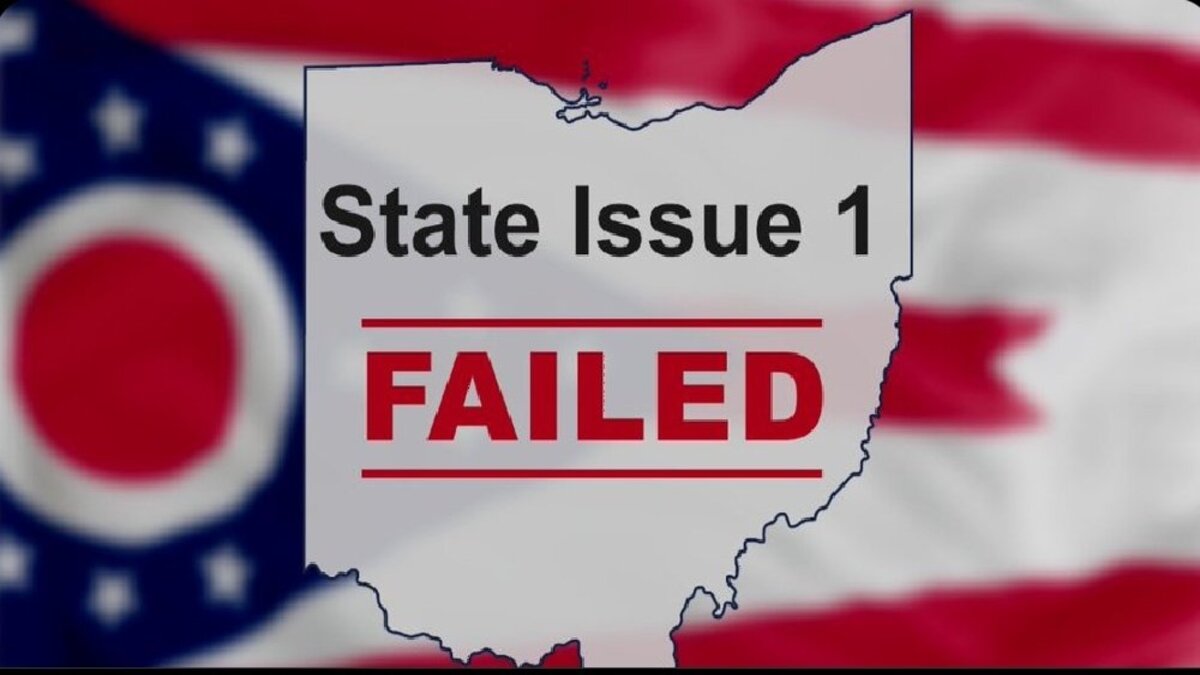UNITED STATES: On Tuesday, Ohio voters opposed a Republican-supported proposal aimed at increasing the difficulty of amending the state constitution, an initiative intended to influence the outcome of a November referendum that aimed to safeguard abortion access in the state.
The outcomes in the special election are significant for those advocating for abortion rights, as they would have needed a substantial majority of voters in the upcoming fall election had the proposal been successful.
The proposal, referred to as Issue 1, aimed to raise the requirement for approving future modifications to the state constitution by 50% to 60% of voters. Additionally, the proposal sought to establish tougher criteria for placing such initiatives on the ballot initially.
With over 1.2 million votes tallied, 60% of the people in Ohio cast their votes against the proposal, while 40% voted in favour, as per the Ohio secretary of state’s office. That margin was enough for Decision Desk HQ and the Associated Press to call the race.
In a written statement on Tuesday evening, U.S. President Joe Biden said, “This measure was a blatant attempt to weaken voters’ voices and further erode the freedom of women to make their own health care decisions. Ohioans spoke loud and clear, and tonight democracy won.”
The election marked the most recent statewide clash regarding abortion, occurring over a year after the U.S. Supreme Court revoked a nationwide abortion right. Various advocacy organisations invested substantial funds in the lead-up to Tuesday’s vote, underscoring the significance of the issue.
Ballot initiatives have emerged as potent instruments for advocates of abortion rights in states where anti-abortion proponents, often aligned with the Republican Party, have dominance over legislative or gubernatorial proceedings.
Voters rejected initiatives last year in states like Kansas and Kentucky, which are known for their conservative leanings, to oppose the inclusion of abortion rights in their state constitutions.
Recently, in Arizona, a pivotal state in presidential elections, organisations supporting abortion rights initiated a campaign on Tuesday to present the matter for voter deliberation in the November 2024 elections.
In 2019, Ohio’s Republican Governor Mike DeWine enacted a six-week abortion ban that became active after the Supreme Court’s ruling. The ban was temporarily halted in September due to legal opposition from abortion clinics. The Ohio Supreme Court will make a decision on the case.
Some critics of the recent ballot question argued that it extended beyond abortion and raised concerns about limiting citizens’ authority, deeming it undemocratic.
“This is much larger than one issue; it’s much larger than one party or one election. This is about a freedom that Ohioans have had for more than a century,”Jen Miller, the executive director of the League of Women Voters of Ohio, said.
For instance, pro-good government organisations are working on a referendum issue for 2024 that would change the constitution to stop gerrymandering, the tactic through which one party manipulates district lines to consolidate control. Getting that subject on the ballot would be much harder if the referendum on Tuesday had been successful.
Last year, Ohio Republicans drew blatantly partisan state legislative and congressional maps and disobeyed court orders to update them. Elections in November were held using these maps, which had been determined to be unlawful.
Opponents of abortion rights have criticised the November referendum as extreme, suggesting its vague wording could potentially permit minors to undergo abortions and gender-affirming surgeries without parental consent.
On the other hand, supporters emphasise that the amendment doesn’t explicitly address gender-affirming treatment or parental consent. The recent election witnessed significant external financial support, including contributions from “dark money” organisations that aren’t obligated to disclose their donors.
Illinois Republican donor Richard Uihlein contributed at least $4 million to back the pro-Issue 1 campaign. Similarly, various groups backing the referendum received funding from sources like Susan B. Anthony, Pro-Life America, and The Concord Fund, a conservative dark-money entity.
The Tides Foundation, a social justice group based in California, and the Sixteen Thirty Fund, a leftist dark-money organisation, both supported the anti-Issue 1 side.
Also Read: Following Week of Silence on Trump, Biden Ramps up Economy Pitch



